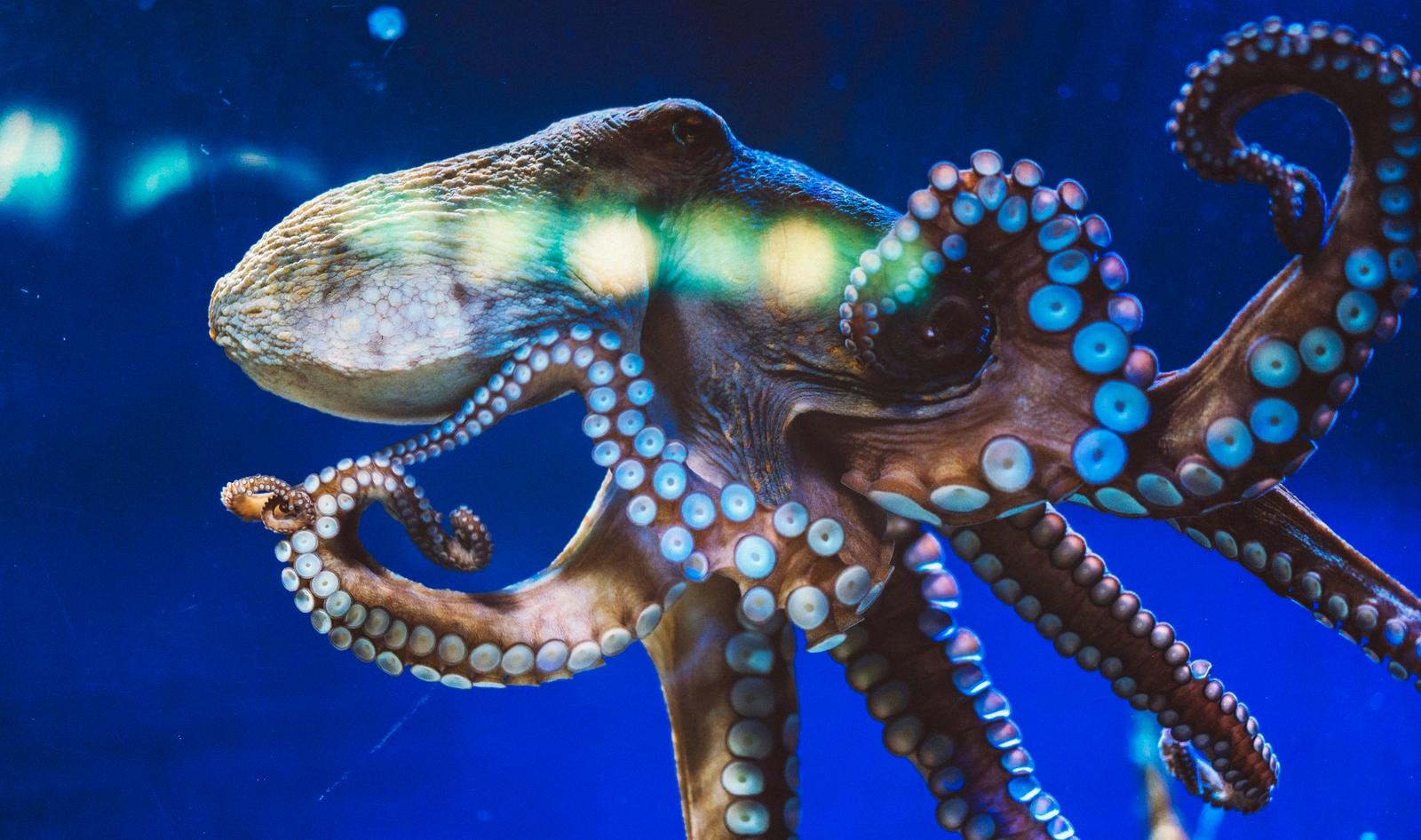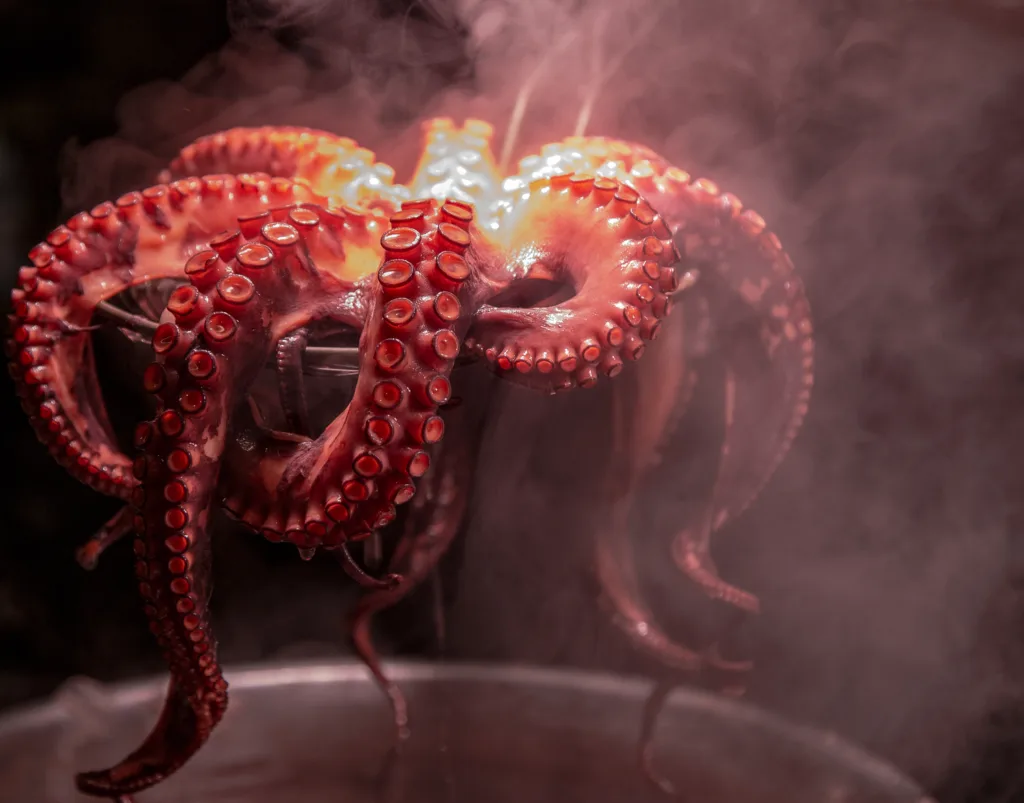Octopuses are fascinating creatures that have captured the imagination of many people. These intelligent and curious animals are known for their ability to change color, shape, and texture to blend in with their surroundings, as well as for their impressive problem-solving abilities.
When it comes to the lifespan of octopuses, tere is a lot of variation depending on the species. The Northern Giant Pacific Octopus, for example, can live up to 3-5 years in the wild, while the Deep Sea Octopus has been reported to guard its eggs for up to 4.5 years. On the other hand, common octopuses typically only live for about two years, while giant octopuses can live up to five years as long as they don’t mate.
Despite their intriguing nature, octopuses are not ideal pets for most people. They are highly intelligent and can easily become bored and distressed in captivity. In fact, a study revealed that even octopuses in tanks outfitted with various items for stimulation still showed signs of distress and self-mutilation.
That being said, some people do keep octopuses as pets, and it can be done with the right setup and care. Octopuses don’t require much light and only need simple wet-dry filtration. However, providing adequate food can be a challenge for many octopus-keepers.
Octopuses are fascinating creatures with varying lifespans depending on the species. While they can be kept as pets, it is important to provide them with adequate stimulation and care to prevent distress and self-harm. the best way to appreciate these amazing animals is to observe them in their natural habitats and support conservation efforts to protect them.
The Longest-Living Octopus Species
Octopuses are fascinating creatures that inhabit oceans across the world. They are known for their intelligence, agility, and unique abilities, such as their ability to change color and texture to match their surroundings. One question that often arises in discussions about octopuses is, what is the oldest living octopus?
The answer to this question is not straightforward, as different species of octopuses have different lifespans. The Northern Giant Pacific Octopus (Enteroctopus dofleini) is the longest living known octopus, with a lifespan of between 3-5 years in the wild. This species is found in the North Pacific Ocean, from Japan to California, and can grow up to 16 feet in length and weigh over 100 pounds.
However, there is another species of octopus that has been reported to have an exceptionally long lifespan. This species is the Deep Sea Octopus (Graneledone boreopacifica), which has been observed guarding its eggs for an incredible 4.5 years. This behavior is highly unusual for octopuses, as most species only live long enough to mate and lay eggs before dying shortly after.
Graneledone boreopacifica is found in the deep waters of the Pacific Ocean, at depths of up to 5,000 feet. Their exact lifespan is not known, but their ability to survive for over 4 years whie guarding their eggs is a testament to their hardiness and adaptability.
The Northern Giant Pacific Octopus is the longest living known octopus, with a lifespan of 3-5 years in the wild. However, the Deep Sea Octopus (Graneledone boreopacifica) has been observed guarding its eggs for an impressive 4.5 years, making it one of the most remarkable species of octopuses in the world.

Source: vegnews.com
The Impact of Mating on Octopus Lifespan
Octopuses are fascinating creatures that have captured the attention of scientists and animal enthusiasts for years. One of the questions that oftn arises is whether octopuses live longer if they don’t mate. The answer is yes, octopuses can live longer if they don’t mate, and the lifespan varies depending on the species.
For example, the common octopus, also known as Octopus vulgaris, has a relatively short lifespan of around two years. In contrast, giant octopuses, such as the North Pacific giant octopus (Enteroctopus dofleini), can live up to five years, but only if they do not mate during that time.
The reason why mating can shorten an octopus’s lifespan is due to a phenomenon known as senescence. Senescence is the gradual deterioration of biological function that occurs as an organism ages, and it often leads to death. When octopuses mate, they undergo a process known as reproductive senescence, where their bodies prioritize producing and caring for offspring over maintaining their own health. This process can lead to a shortened lifespan.
It’s important to note that not all octopuses experience the same lifespan, and various factors can impact their longevity. For instance, environmental factors such as temperature, food availability, and habitat quality can all influence an octopus’s lifespan. Additionally, some species of octopuses, such as the deep-sea octopuses, have relatively unknown lifespans due to the difficulty in studying them in their natural habitats.
Octopuses can live longer if they don’t mate, and the lifespan varies depending on the species. While reproductive senescence can shorten an octopus’s lifespan, other factors such as environment and species-specific characteristics also play a role in their longevity.
The Happiness of Octopuses in Captivity
Octopuses are not well-suited to life in captivity and are not considered happy in such conditions. These intelligent creatures require a complex and varied environment to thrive, which is difficult to replicate in a tank or aquarium. Studies have shown that even when provided with enrichment objects such as flowerpots, stones, beads and shells, octopuses in captivity may sill exhibit signs of distress and even self-mutilation.
In addition to the challenges of providing an adequate environment, octopuses are also known to be highly sensitive to stress. They can become easily agitated by changes in their surroundings, such as fluctuations in water temperature or the presence of unfamiliar animals or people.
While it may be tempting to keep an octopus as a pet, it is important to consider their welfare and the challenges of providing a suitable environment. It is generally recommended that octopuses be left in their natural habitat, where they are free to roam and explore in a way that allows them to express their natural behaviors and preferences.
Keeping an Octopus in an Aquarium: How Difficult Is It?
Keeping an octopus in an aquarium can be challenging but not impossible. Octopuses are highly intelligent and active creatures that require a lot of attention and care. The biggest challenge for most octopus keepers is poviding adequate food. Octopuses are carnivorous and need a varied diet of live food such as shrimp, crabs, and fish. They also require a good filtration system to maintain the water quality in their aquarium.
Octopuses are escape artists and can easily slip out of small openings or cracks in their tanks. Therefore, it is essential to keep their aquariums secure and free from any potential escape routes. Additionally, octopuses are also known to be highly sensitive to changes in their environment, such as temperature and water quality. Thus, it is important to maintain a stable and consistent environment for them.
Octopuses are not picky when it comes to lighting. They require minimal light, and a dimly-lit aquarium is sufficient for them. They also prefer a sand substrate, which allows them to burrow and hide. Octopuses are solitary animals and should be housed alone in their tanks.
Keeping an octopus in an aquarium can be challenging, but with proper care and attention, it can be a rewarding experience. Octopuses require a varied diet of live food, a good filtration system, and a secure and stable environment.

Conclusion
Octopuses are fascinating creatures that have captured the attention of scientists and enthusiasts alike. With their incredible intelligence and unique abilities, they continue to amaze us with their behavior and survival skills. While they may not be the ideal pet, octopus aquariums can be maintained with the proper care and attention. However, it is important to remember that octopuses are living beings that require a specific environment and adequate nourishment. As we continue to learn more about these creatures, we can appreciate their complexity and the vital role they play in the ocean ecosystem.
